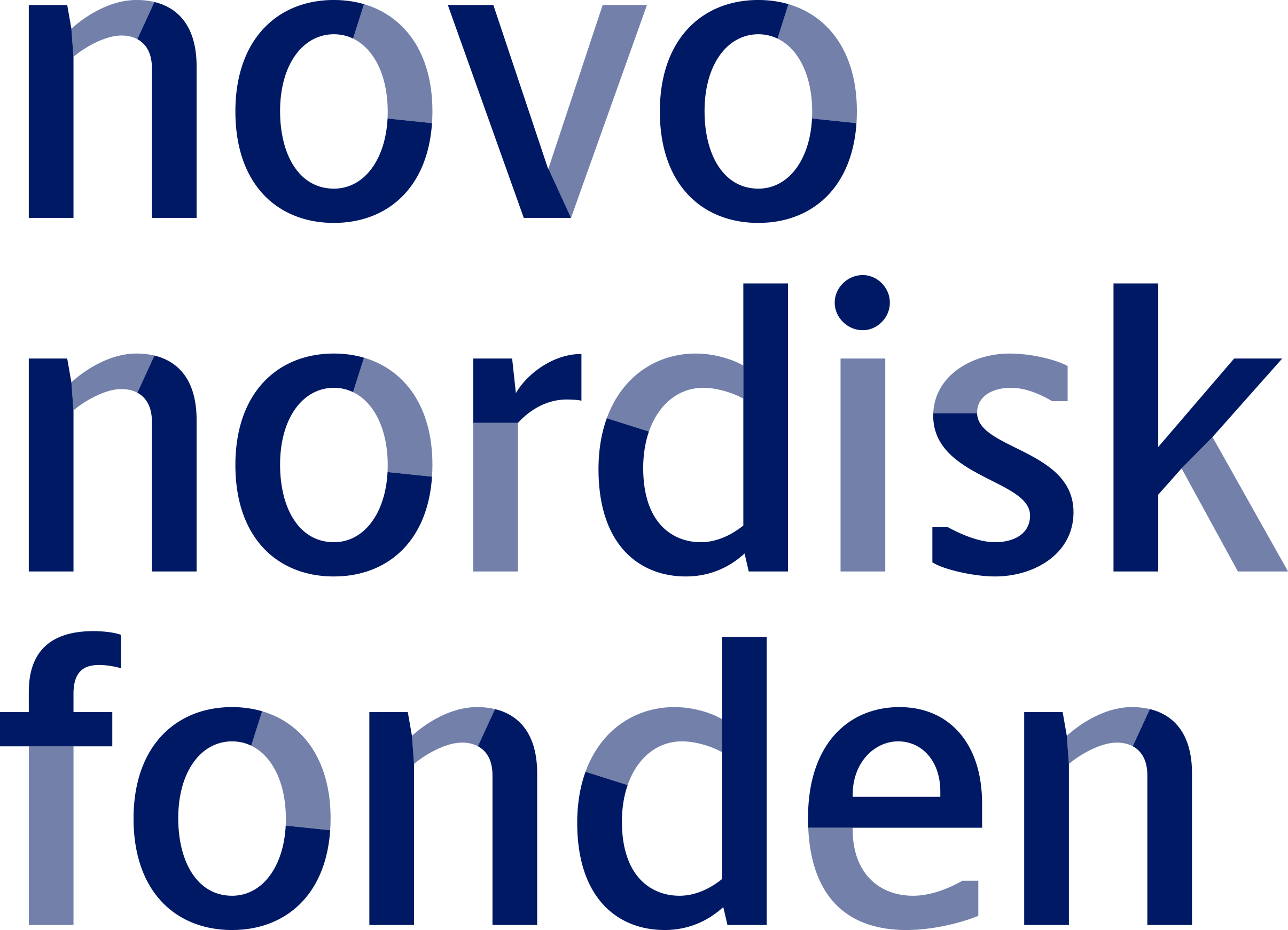Four scientists from Department of Biology have received prestigious NNF investigator grants
Albin Sandelin, professor at Department of Biology has received The Distinguished Investigator grant from Novo Nordisk Foundation (NNF). Three other scientists from Department of Biology have received grants from NNF. Associate professor Robin Andersson and Associate professor Anders Albrechtsen have received The Ascending Investigator Grant and Associate professor Henriette E. Autzen has received The Emerging Investigator Grant for their outstanding research.
”To promote Danish fundamental research at the highest international level the Novo Nordisk Foundation (NNF) seeks to support outstanding scientists with ambitious projects relevant to understanding the human organism and/or basal mechanisms underlying health and disease”. (https://novonordiskfonden.dk/en/)
Albin Sandelin, professor at Department of Biology has received The Distinguished Investigator grant from NNF. The grant is for outstanding professors who have demonstrated the ability to execute and lead research at the highest international level.
Three other scientists from Department of Biology have received grants from NNF. Associate professor Robin Andersson and Associate professor Anders Albrechtsen have received The Ascending Investigator Grant and Associate professor Henriette E. Autzen has received The Emerging Investigator Grant for their outstanding research with the ability to lead larger and more challenging studies. All four researchers have received app. 10 mDKK.

Robin Andersson,Associate Professor, Section of Computional and RNA Biology
NNF Hallas-Møller Ascending investigator grant
Project: “Functional and topological redundancies in transcriptional regulation”
DKK: 9.994.444
Robin Andersson says: “Cellular activities are controlled by specific processes during development and in response to environmental changes. Which genes are active and how much RNA is produced at a given timepoint in a cell is coordinated by specific regulatory elements encoded in the DNA that, via binding of dedicated proteins (transcription factors), determine the rate of transcription. These regulatory processes are essential for a cell and genetic disruptions of regulatory elements may therefore lead to disease. This project will investigate the mechanistic basis of how regulatory activities are conveyed via transcription factors and assess the occurrence of failsafe systems mediated via redundant regulatory elements that buffer the impact of possible mutations. Understanding these processes and the interplay of regulatory elements is of high importance to better understand transcriptional regulation and the genetic basis of disease, which may ultimately lead to better diagnostics and treatments.”
Albin Sandelin, Professor, Section of Computional and RNA Biology
NNF Distinguished Investigator grant
Project: “Deciphering the code of nuclear RNA degradation by deep learning and transcriptomics”
DKK: 9.995.004
Albin Sandelin says,"The most fundamental process in molecular biology is reading of genes in DNA into RNA (transcription), which is then translated into proteins. However, we also need systems to remove RNAs from cells RNA degradation. Because RNA degradation rates vary between different RNAs, RNA transcription and degradation together shape the concentration of each RNA in the cell. Therefore, understanding RNA degradation systems is necessary to understand the cell. Our current understanding is not on the level where we can predict the RNA degradation rates of a specific RNA based on its sequence and chemical properties. In this project we will merge state of the art methods for profiling RNA properties with the latest development in computer science: deep learning. We will make methods that can predict RNA degradation rates and discover what biological signals that are important for RNA degradation. This will be important for cell biology, but also for RNA-based medicine and biotechnology."
Anders Albrecthsen, Associate Professor, Section of Computional and RNA Biology
NNF Ascending investigator grant
Project: “Studies of metabolic health and disease in consanguineal relationships and small and historically isolated populations”
DKK: 9.957.358
Henriette Elisabeth Autzen, Associate Professor, Section of Biomolecular Sciences
NNF Emerging Investigator Grant
Project: “A spoon full of sugar makes the medicine go down: Decoding the molecular mechanisms of sweet and savory taste signaling”
DKK 9.999.375
Henriette Autzen says: “Sweet, umami, bitter, salt and sour are the five tastes, which allow us to enjoy home cooked meals or motivate us to seek out Michelin star restaurants to experience new, imaginative dishes. However, gustatory perception is also tied to survival and helps our bodies identify toxins, maintain nutrition and regulate gastrointestinal motility. The receptors involved in taste signaling are known, but details on their molecular mechanisms remain unknown. My project aims at advancing our understanding of the molecular mechanisms underlying sweet and umami taste perception by exploring the cutting edge of single-particle cryo-electron microscopy (cryo-EM) to study the structure, dynamics and function of membrane-bound taste receptors. As a major bottle neck in cryo-EM is sample preparation, I aim to extend our understanding beyond the receptors, developing sample-preparation approaches to facilitate native-like conditions for membrane proteins outside their home environment.”
Kontakt
Helle Kirstine Blæsild
Teamleader PR & Communications
Department of Biology, University of Copenhagen
Tel: 2875 2076
Mail: helleb@bio.ku.dk
Sidsel Kretzschmer Henriksen
Science Communication
Department of Biology, University of Copenhagen
Tel: 3533 4147
Mail: sidsel.henriksen@bio.ku.dk

